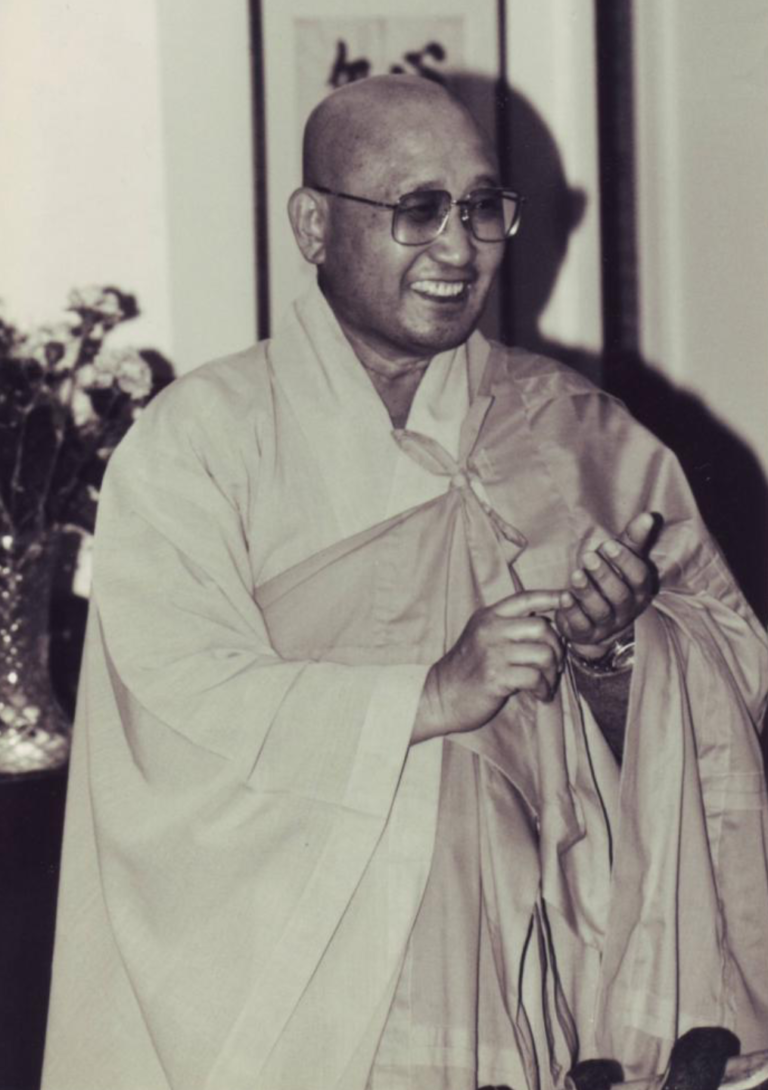NOTE: The following Dharma Talk was given by Rev. Charama on Sunday, November 12th, 2017:
It amazes me (although, by now it shouldn’t) that Zen practitioners train – sometimes for decades! – to avoid dualism, “making something,” letting the stopper out of the bottle, and living in the realm of concepts.
We pride ourselves in our ability to see clearly, grasp the subtle distinction between form and emptiness, and practice hard to become Bodhisattvas.
Yet, we are often among the first to succumb to the media, strong opinions, anger, fear, and some of the most glaring examples of polarization I’ve encountered.
If that’s what a Zen practice is, how does it differ from how those who don’t practice Zen live?
Christians call this their “witness” – how the world (non-Christians, primarily) sees them.
In other words, what people see regarding our conduct is what they will use to determine what we believe, if we can be trusted, if we mean what we say, if what we practice might be something they want to practice as well.
In my experience, it’s very easy to say one thing and do another. Non-Christians accuse Christians of this all the time. They call it hypocrisy.
Yet, Zen practitioners are not immune from the same hypocrisy.
We do it all the time.
Log on to Facebook once in awhile. You’ll see what I mean.
Zen practitioners don’t seem to have a built-in regulator, a self-mirror to hold up to assess our practice – which is ironic because one of the teachings of Zen is called the Zen mirror. Only the Zen mirror works in reverse. When our minds are clear, and we see our surroundings clearly, without bias or attachment, then we can “mirror” what’s in each moment, reflect what is back to it. Live authentically, in other words.
However, this clarity of mind and ability to merely mirror what is depends, first of all, on how much we use the mirror on ourselves.
I think, to be honest, that Zen practitioners like to think they’ve cast off the need to be self-aware, to adhere to “rules” or “regulations” or anything that constricts one’s freedom – especially if it comes from Judeo-Christian morality. Buddhists, like Christians, can be bigoted, too. They can eschew building bridges to other religious traditions and look down their noses at the “other.”
It’s not that there aren’t plenty of guidelines for Buddhists. For example, the Four Noble Truths and the Eightfold Path. Or what’s learned from Sutras. Or the Six Paramitas.
Buddhists have at their disposal all kinds of ways to engage in self reflection, to observe and weigh one’s actions.
But they don’t, as a general rule.
Just like many people don’t, as a general rule.
This is likely part of the reason why the world is the way it is – few apply their spiritual traditions, starting first with themselves.
 The late Korean Zen Master Seung Sahn wrote a book titled Compass of Zen Teaching, on page 11 of which he wrote:
The late Korean Zen Master Seung Sahn wrote a book titled Compass of Zen Teaching, on page 11 of which he wrote:
The purpose of Buddhism
first attain Enlightenment,
then instruct all creatures.
The order is first oneself. Then others.
The implies my practice has to employ the Zen mirror turned to face me or else I won’t get to the second part: “then instruct all creatures.”
The hallmark of a newbie from any spiritual tradition is impatience. I’ve heard it said that there’s nothing more dangerous than a new Christian. He/she wants to share everything – with unbridled enthusiasm – with the world, usually as a system of dos and don’ts. A more seasoned believer tends to be less judgmental, less in-your-face.
The same is true with Zen practitioners. It’s easy to get a taste for seeing clearly, of eschewing concepts, of thinking one is free from attachments…and then use one’s new-found enthusiasm as a kind of club with which to beat others.
I know. Because I did those very things – first, as a Christian. And then as a practitioner of Zen. In both instances, I learned a little, thought it was a lot, and became a know-it-all.
So when I survey the landscape that is America, circa 2017, I see lots of things amiss, some coming from those who ought to know better. Including myself.
The answer is not to dismiss Zen as a crock. Nor Christianity, for that matter. The answer is to hold up the Zen mirror to our own faces, practice hard to rid ourselves of whatever it is within us that likes to be in control, right, sovereign of our own destinies and lord of the lives of others.
If we strive to become Bodhisattvas, to being compassionate, to being unattached to ideologies and outcomes and concepts, we will be less angry, judgemental, polarizing, and impatient with others.
So, as the year 2017 winds down, I need to once again hold up the mirror of Zen to my own face to see what’s reflected therein.
It hasn’t always been pretty.
But that’s why they call it a practice.
I can do something about it.
